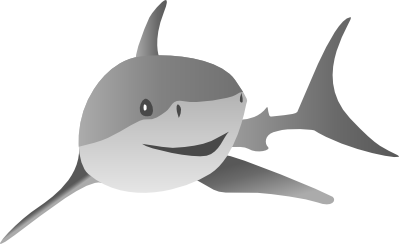Frequently asked questions¶
Contents:
- Frequently asked questions
- General
- Installation
- How do I install the Shark library?
- My installation fails - what now?
- Do I need root/administrator access to install the Shark library?
- I get an error message C2589 concerning “std::min” when compiling using Microsoft Visual Studio
- For some reason, cmake does not find boost
- How do I install the Shark documentation?
- Functionality
General¶
Is there a mailing list for users of the Shark library?¶
No. The mailing list ceased to exist when we moved the repository to GitHub.
Where can I get help if my problem is not covered by the available documentation or this FAQ?¶
Please report the bug via https://github.com/Shark-ML/Shark/issues.
Whenever you are reporting a bug, you should briefly scan over our below bug reporting guidelines to help our developers in resolving the issue:
- Check whether the bug has already been reported.
- Provide information on the Shark version you are using and the platform you are working on.
To this end, you can execute the program
Versionthat is part of the default Shark installation. You can directly copy its output into your bug report. - Try to provide us with a minimal test case for reproducing the problem.
Installation¶
How do I install the Shark library?¶
Please click on Getting started.
My installation fails - what now?¶
Please first see the dedicated installation troubleshooting page. If that didn’t help, see the above section Where can I get help if my problem is not covered by the available documentation or this FAQ?.
Do I need root/administrator access to install the Shark library?¶
No, root/administrator access is not required. However, if you want to install the library to a
central location (such as /usr/lib/ on Linux) you will of course need write access to that directory.
Otherwise, simply select local prefixes for both the Shark installation as well as any other dependencies
you may need to install (e.g., Boost, ATLAS, etc.).
I get an error message C2589 concerning “std::min” when compiling using Microsoft Visual Studio¶
The solution is to add NOMINMAX to the list of compiler macro declarations.
For some reason, cmake does not find boost¶
Please see the troubleshooting site on Getting Shark to find Boost for how to provide hints to the Shark CMake configuration about the location of Boost.
How do I install the Shark documentation?¶
There is a concise “README.txt” file in the doc/ subdirectory intended for people who do not
have access to the documentation while building the documentation. Also, there is a tutorial on
the documentation system, including building the documentation, located
here. Finally, there will be a
separate documentation package available for download on the
download page.
.
Functionality¶
What are the differences between Shark and other libraries? Why should I use Shark?¶
Shark is a native C++ library designed for development and real-world application of state-of-the-art machine learning and optimization algorithms. The library has a history of more than 10 years of successful applications. It is actively supported and still growing. We are continuously extending and improving the algorithms in various domains of machine learning and computational intelligence.
Flexibility and speed are the main design criteria. We think that its flexibility and extensibility make Shark stand out from other libraries.
It is mostly self-contained and offers computational intelligence techniques such as single- and multi-objective evolutionary algorithms and neural networks as well as kernel-based machine learning methods and classical optimization techniques in a coherent framework. This is unique.
Shark is an object-oriented software library and to use it requires knowledge in C++ programming. If a graphical user interface is important for you, you may go for other machine learning software (or feel free to contribute such a front-end for Shark).
Shark implements a lot of powerful algorithms not available in any other machine learning library, of course in particular methods based on the research of the developers.
Some highlights:
- The Shark SVM is the only SVM package implementing the fastest SMO-based learning algorithm for binary and multi-class support vector machines.
- Shark provides a variety of model-selection algorithms for SVMs, for example gradient-based optimization of the kernel-target alignment, which is not available in any other library.
- Shark provides a large collection of efficient gradient-based optimization techniques, for example the frequently applied iRprop+, a fast and robust method not available in other machine learning libraries.
- We do not know any software library for single-objective evolutionary algorithms that comes close to Shark in terms of variety and quality of algorithms for real-valued optimization. To our knowledge, Shark is also one the most comprehensive libraries for evolutionary multi-objective optimization. The efficient implementation of the hypervolume metric (S or Lebesgue measure) and of the powerful MO-CMA-ES are special features.


